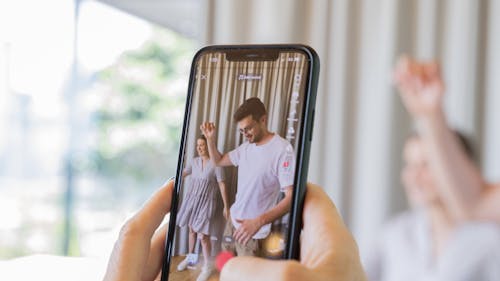KOLI: Social media influencing is not ideal as career
Column: Talk More

It is hard to imagine a life without social media, especially for the younger generations. Apps such as Instagram, Snapchat and TikTok have become prime sources of communication and consumption in the world today.
Influencers take on the job of promoting products to keep people hooked on these apps, all while making an absurd amount of money for themselves and those who sponsor them. TikTok and Instagram are easily accessible, and influencers can reach a wider audience through these platforms to convince users to consume their sponsored products.
These past few weeks have been tense for the future of TikTok as threats of banning the app in the U.S. emerged due to potential security threats. We should take this opportunity to reflect on social media and its influence on our lives.
Social media positively impacts us by allowing us to meet new people, reconnect with the old and spread awareness of current issues and events globally. Objectively, posting photos on Instagram or short videos on TikTok is not inherently harmful because, in most cases, people are sharing a part of their lives with the public for entertainment purposes.
But the problem arises when influencing becomes a career.
Yes, social media as a job can be beneficial for companies, influencers and consumers because they are promoting products and services that can improve the lives of many people. Once fans are influenced and a sense of trust has been built, they will continue to consume those influencer-recommended products.
But that is not the case for every influencer or product. Influencing is lucrative, but it can lead influencers to endorse problematic products for the sole purpose of making money.
Currently, TikTok influencers make anywhere from $11,500 to $105,000 annually. This could be from branded content, the creator fund or gifts sent through live streams by consumers of their content. Not only can this be harmful to fans who are buying products that are not necessarily reliable, but it can also severely damage the reputation of influencers.
Additionally, this shows that being an influencer is not a stable job. For many social media users, it takes time and luck for their content to become appreciated or famous enough for them to make money off of it.
Some posts do better compared to others, but there is no guarantee that every single photo or video posted by an influencer will garner the same amount of attention.
Many influencers will reach their peak in their social media career, and once their content becomes repetitive, fans will get bored of it. And just like that, their career comes to an end.
But the question remains, what will they do when social media is not working out anymore?
Oftentimes, young people go viral on apps like TikTok and Instagram, which leads them to shift their focus to social media instead of other things in their lives, such as school. Young people are either dropping out of college or choosing not to attend because their careers on social media have blossomed to the point where they are making a sufficient amount of money without having a college degree.
While it is true that college is not the right move for everyone, it is important to have a basic K-12 education. People must consider their options and plan out what they can do if social media fails. Going back to school can be difficult and the same goes for finding a job without a college degree.
When young children see influencers they look up to, they are inspired by them to do the same things they do. In Generation Z, 1 in 4 Americans want to become influencers when they grow up, likely due to the perceived fame and significant financial gain that comes with the position.
Young children tend to make up a large portion of social media consumers, making them more vulnerable to being hurt by the content influencers put out, even if it is unintentional. For instance, people on Instagram or TikTok choose what they want to post on the internet, and not everything we see on social media is true.
Influencers are in control of what image they want to create for themselves online. People can easily edit photos or make themselves out to be something they are not, which sets unrealistic standards for everyone, especially younger audiences that idolize these influencers.
Influencers are humans just like us. Their fame, power and money should not make them superior to those who do not possess those qualities.
As technology becomes more accessible and our social media presence grows, it can be difficult to distinguish things as real or fake. It is important to take a break from the internet and reconnect with the world around us.
Vidhi Koli is a first-year student in the School of Arts and Sciences, where she is undecided. Her column, 'Talk More,' runs on alternate Thursdays.
*Columns, cartoons and letters do not necessarily reflect the views of the Targum Publishing Company or its staff.
YOUR VOICE | The Daily Targum welcomes submissions from all readers. Due to space limitations in our print newspaper, letters to the editor must not exceed 900 words. Guest columns and commentaries must be between 700 and 900 words. All authors must include their name, phone number, class year and college affiliation or department to be considered for publication. Please submit via email to oped@dailytargum.com by 4 p.m. to be considered for the following day’s publication. Columns, cartoons and letters do not necessarily reflect the views of the Targum Publishing Company or its staff.



